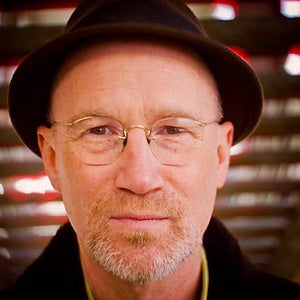
If you prefer to buy tickets over the phone, please call: 704.372.1000
Marshall Crenshaw
Mar 1, 2015 • Evening Muse
-
Pricing:$13.99
-
Presented by:
Overview
Born near Detroit, Michigan, Marshall Crenshaw began playing guitar at age ten and he received his first break playing John Lennon in the off-Broadway company of Beatlemania. In 1987, he played Buddy Holly in the Richie Valens biopic "La Bamba." While living in NYC, he recorded the single "Something's Gonna Happen" for Alan Betrock's Shake Records, which led to a deal with Warner Bros. His debut album, Marshall Crenshaw was acclaimed as a pop masterpiece upon its release in 1982 and established him as a first-rate songwriter, singer and guitarist. The record spawned the Top 40 single "Someday, Someway," which rockabilly singer Robert Gordon covered and scored a hit with a year earlier, and other classics such as "(You're My) Favorite Waste of Time," "Whenever You're On My Mind" and "Cynical Girl." The great songs continued with the Life's Too Short album on MCA ("Fantastic Planet of Love"), three albums for Razor & Tie and the 2009 release Jaggedland ("Someone Told Me," "Passing Through," "Never Coming Down A quote from Trouser Press sums up Marshall Crenshaw's early career: "Although he was seen as a latter-day Buddy Holly at the outset, he soon proved too talented and original to be anyone but himself." All Music Guide captured Crenshaw's vibe perfectly: "He writes songs that are melodic, hooky and emotionally true, and he sings and plays them with an honesty and force that still finds room for humor without venom." "His intelligence, integrity, and passion for the great song always show up in his music," wrote Robert Christgau in his Consumer Guide of Marshall Crenshaw. Over a span of 30 years, Crenshaw has released 13 albums, all of which have received the highest marks from critics and have earned him a fiercely loyal fan base. "I wanted to think of a different way of working that would inspire me and keep me motivated," Marshall Crenshaw says of his newest endeavor: a subscription-only service that addresses the recent seismic changes in the music-industry landscape by cutting out the record-company middle man to distribute his new recordings directly to fans. The subscription service, which the veteran singer/guitarist/songwriter/producer recently launched via a successful Kickstarter funding campaign, will provide fans with a steady stream of new Marshall Crenshaw music via a series of exclusive three-song 10-inch, 45-rpm vinyl EPs on Addie-Ville Records, six of which the artist plans to release over a two-year period. In addition to the vinyl discs, subscribers will also receive a download card for high-quality digital versions of the EP tracks. Each EP will consist entirely of newly recorded, never-before-released material, encompassing a new original Crenshaw composition, a classic cover tune, and a new reworking of a time-honored favorite. "I really do think that vinyl sounds best, and that playing a vinyl record is still the optimum listening experience," Crenshaw asserts. "And with the sound quality that you get at 45 rpm, I think that these things are going to deliver the goods, sonically." The first subscription EP's A-side is the brand-new Crenshaw number "I Don't See You Laughing Now," recorded with longtime cohorts Andy York (John Mellencamp, Ian Hunter), and Graham Maby (Joe Jackson, They Might Be Giants). The record's double B-side features a memorable new reading of The Move's 1971 post-apocalyptic anthem "No Time," recorded with veteran New Jersey rocker and frequent Crenshaw collaborator Glen Burtnick; and a new version of "There She Goes Again," whose original version appeared on Crenshaw's eponymous 1982 debut album, recorded live with alt-country icons the Bottle Rockets. All three tracks were mastered for maximum awesomeness by legendary engineer Greg Calbi, who will handle mastering duties on the entire EP series.
Event Showings
Click the calendar icon below to add the event to your calendar.
This event has already occured.
Links & Resources
CarolinaTix.org is not responsible for any information, links, buttons, or pricing on external websites.